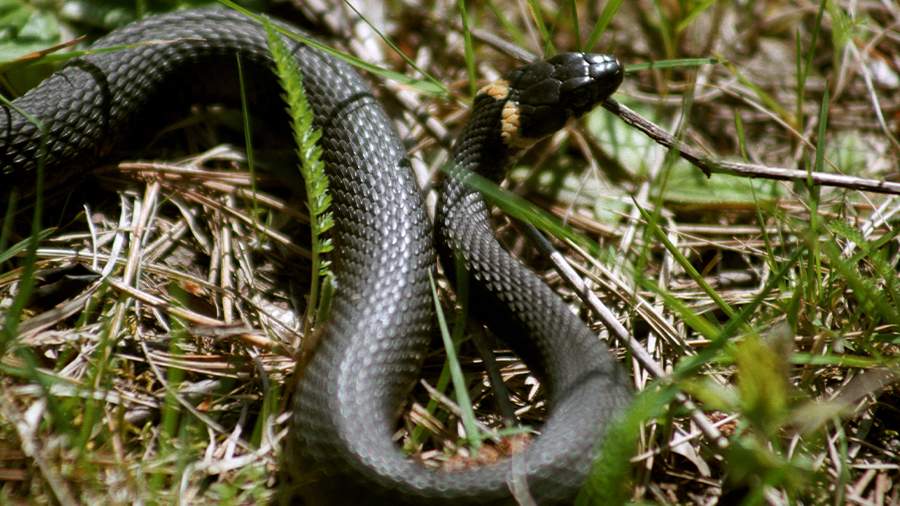The expert named the main mistakes when meeting a snake
With the arrival of the warm season in Russia, snakes have become more active, which increases the risk of dangerous encounters for people. A reptile bite can be accompanied by acute pain, swelling, redness, bruising, and blisters. Denis Kovalev, senior lecturer at the Department of Life Safety at the State University of Education, told Izvestia on April 3 how to protect yourself from bites and what to do in an emergency.
According to the expert, to prevent bites, it is necessary to wear high closed shoes and tight trousers when visiting possible snake habitats. Special care should be taken in dense thickets and at dusk, when reptiles are most active.
"When encountering a snake, do not touch it, even if it seems dead — a reflex bite is possible," warns Kovalev.
The expert shared that when bitten by a snake, symptoms may appear: acute pain, swelling, redness, bruising, blisters, nausea, vomiting, dizziness, difficulty breathing, visual impairment, sweating. Some poisons cause numbness, muscle weakness, and paralysis.
Kovalev warned: in case of a reptile bite, you should never cut the wound, because this will accelerate the absorption of the venom. Also, do not suck the poison out of the wound.: It's dangerous. Cauterization of the wound can increase necrosis and burn, alcohol and caffeine will only accelerate the spread of the poison, and if ice is applied to the wound, the condition of the tissues may worsen.
Proper care, according to the specialist, begins with staying calm, as panic increases the heart rate and accelerates the spread of the poison. The injured limb should be immobilized with a splint or bandage, remove all jewelry and tight clothing, then apply a pressure bandage to the bite area and slightly higher.
"Remember the snake's appearance: This will help you find an antidote. Even a "non-venomous" bite can cause allergies or infection. Do not rely on traditional methods," the expert clarified.
Earlier, on March 11, Vladimir Golubev, President of the Russian Cynological Federation, told Izvestia about ways to boost a dog's immunity. He advised timely vaccination of the animal. According to him, there are many myths connected with this. For example, many people think that if a dog doesn't walk much on the street, then he doesn't need vaccinations. In addition, some people believe that small dogs do not need to be given the entire dose of the vaccine.
Переведено сервисом «Яндекс Переводчик»

